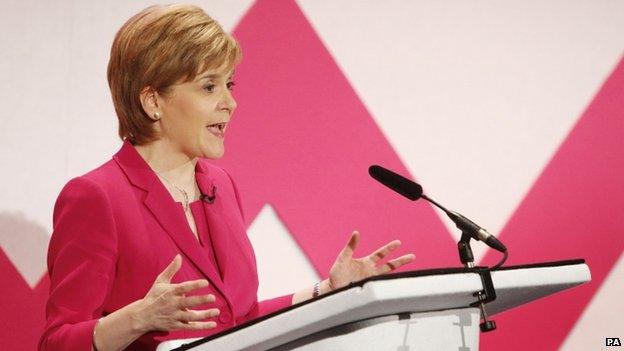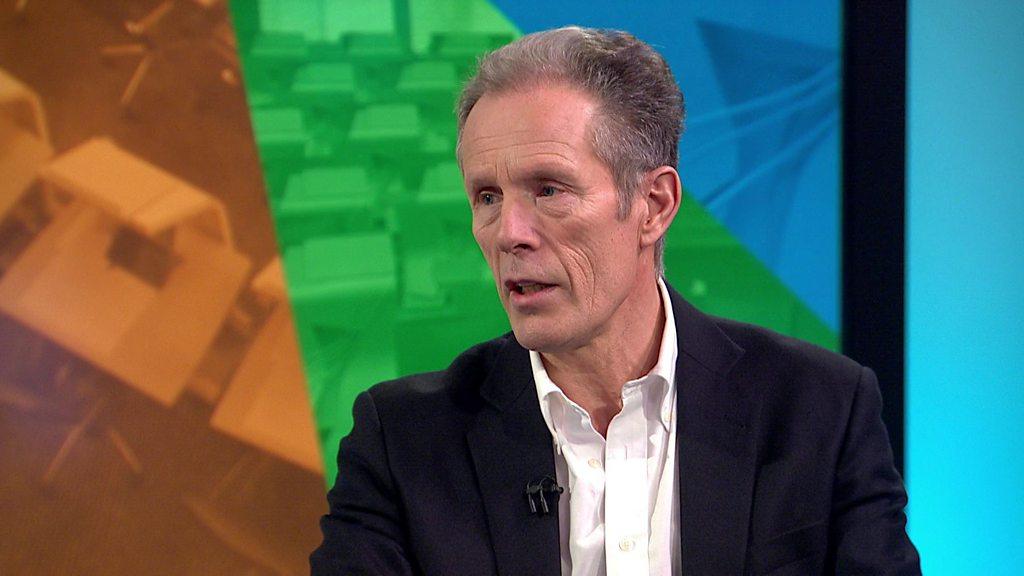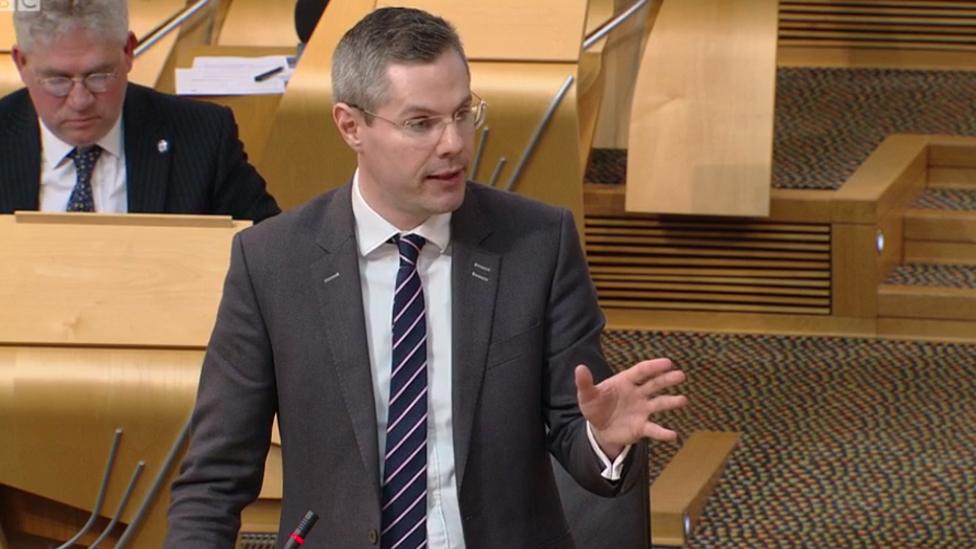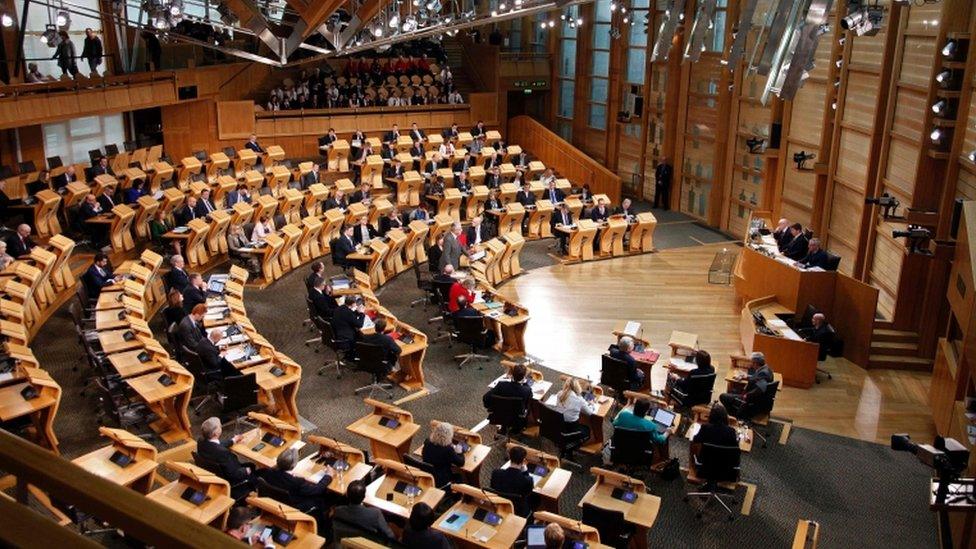It's a 'yes' to BBC Scotland's new TV channel
- Published
Blair Jenkins: "It is a modest and challenging budget for the channel"
There is nothing more disarming than saying yes. Elegant consensus can have a potency all of its own, capable of deflecting the murmurs or indeed growls of discontent that are common in public discourse.
Such would seem to be the case with the BBC's composite announcement today anent the future of broadcasting in Scotland.
The central promise is a new digital channel specialising in Scottish content, with an hour long news programme at its core, made in Scotland and featuring Scottish, UK and global news.
In essence, this mirrors the central recommendation of the Scottish Broadcasting Commission, set up by the first SNP Scottish government way back in 2007. More recently, in 2015, Nicola Sturgeon pressed the BBC to create such a channel. So today's announcement is yes, twice. Eventually.
The Commission argued for "the creation of a new Scottish Network: a digital public service television channel, with an extensive and innovative online platform, funded out of the new UK settlement for Public Service Broadcasting plurality and licensed and given full regulatory support by Ofcom."
Distinct channel
Aside from being my amiable erstwhile boss, Blair Jenkins performed the task of leading that commission, external. (He later took up the challenge of heading the Yes Scotland organisation during the referendum of 2014.)
Asked today (on BBC Scotland) for his reaction to the latest announcement, Mr Jenkins gave it a warm welcome. Like other observers, he queried whether the £30m budget would ultimately prove sufficient.
But his support for the concept was strong. He argued that it was now appropriate for the BBC to set up a distinct channel. (The original report featured the option of an alternative public service offering.)
Mr Jenkins said further that a distinct channel would be preferable to a Scottish Six (replacing the network Six O'Clock News and Reporting Scotland) because that idea tended to divide opinion fairly sharply.
The Commission's report in 2008, external also urged additional spending on network programming made in Scotland. Today's announcement features that element - although, again, the extent is closely questioned and challenged.
Such is the focus upon the BBC, it is frequently forgotten that the Commission also made recommendations for other channels - in essence, urging them to up their game with regard to Scotland.
It seems at least arguable that enhanced investment by the BBC in Scotland may well encourager les autres.

Nicola Sturgeon spoke about a new Scottish TV channel during an address at the Edinburgh International TV Festival in 2015
And what of political reaction? Here at Holyrood the considered response, in terms of statements from the Scottish government, the SNP and opposition parties, has been generally positive. Quite notably so.
As indicated, there are question marks over the funding, over the timing, over the scheduling. Important questions, legitimately posed.
But it is notable that, in formal statements as opposed to earlier tweets, neither the Scottish government nor the SNP returned to the topic of the Scottish Six. With the caveats about funding, both welcomed today's detailed announcement.
For example, the Culture Secretary Fiona Hyslop said: "This is a real shift in the right direction from the BBC and responds to calls we've made for some time for a new TV channel for Scotland."
To be clear, Ms Hyslop also went on to lament what she regarded as under-investment in Scotland by the BBC, challenging the corporation to go further, putting Scotland "on an equal footing with other devolved nations".
But, more generally, if the BBC is saying "yes" then political Scotland is saying "thanks". For now.
- Published22 February 2017

- Published21 February 2017

- Published21 February 2017
